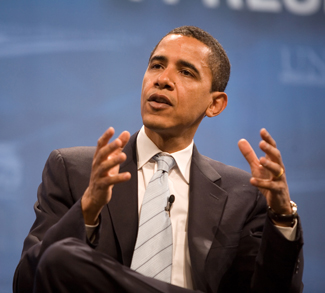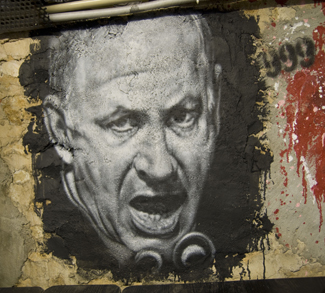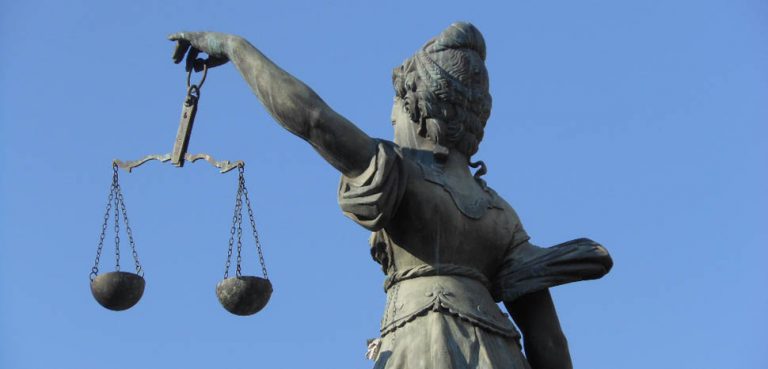US President Barack Obama’s foreign policy driver, at times fuzzy, appears in sharper focus as the president confronts the challenges of his second term.
What began in 2009 as global rapprochement and retrenchment grounded in realpolitik, in stark contrast to President George Bush’s over-extended messianic interventionism, now seems to have mutated into resignation, or at least hesitation and indecision. If the United States is not resigned under Obama, friends and foes alike can be forgiven for thinking otherwise.
There is evidence of this in traditional spheres of American interest, where perhaps Northeast Asia is the most visible now. A pattern of hesitation and “constructive diplomacy” in North Korea appears to have emboldened the regime. China’s assertiveness and sovereignty disputes against US allies in Japan and the Philippines are not lost on the Obama administration, but the response is either inconsistent or indecisive. Certainly, we do not see conventional American counter-measures, such as joint naval exercises or new treaties. China is “constructively engaged,” although harsher critics of the administration might say “appeased.” In the taxonomy of Harvard’s Joseph Nye, Obama is a “transactional” president despite his rhetoric, not a “transformational” one.
But nowhere is the cycle of rapprochement, retrenchment, and resignation more evident than in the Middle East.
Here the policy is in fact traceable, consistent, and logical – if one accepts the accuracy of the premise. Obama extended his hand to the Arab world promising a “new beginning” in his June 2009 Cairo Speech. Beneath all the rhetoric, the basic message was clear: It was time for the United States to step back and let the Arab and Muslim world manage its own affairs without intervention. All that was left for the US to do, Obama intimated, is leverage America’s strong support for Israel to forge a deal with the Palestinians. Despite a heartfelt reiteration of America’s commitment to democracy, Obama insisted the United States would no longer attempt to shape or impose regimes in the Arab world. Indeed, the message that resonated was that the United States would work with populist, Islamic or conservative governments – provided a measure of respect for human rights was evident and US interests, such as non-proliferation, could be negotiated.
Whether or not Obama’s speech released the Arab Spring or whether George Bush’s mirage of a democratic Iraq gripped the minds for an Arab revolt is unclear. Perhaps we attribute too much influence to the United States in either case, which in part seems to be Obama’s own unspoken but sober premise.
What is clear is that Obama meant what he said in terms of non-intervention and a decided preference for negotiation. Jewish national self-determination – Israeli Zionism – fits Obama’s world view, but so too does Palestinian nationalism. America’s role is to facilitate a negotiated agreement, not to impose terms. It was US manipulation, he was certain, that fomented Arab mistrust of the West at best. At worst, this suspicion degenerated into an undercurrent of historical contempt for perceived imperialism and Crusader-Zionism. Therefore, the refusal to intervene must be seen for what it is: an ideological commitment to the idea that the revolutions in the Arab world would produce regimes that seek pragmatic relations with America for the very fact that America did not seek to impose the outcomes.
Indeed, in February 2011, it was possible to identify in a favorable light the spirit of Woodrow Wilson in Obama’s foreign policy. In the Huffington Post, the accomplished analyst Kate Seelye wrote that “A moderate, non-ideological, pro-democratic Arab voice is emerging. Now is the time to defend this voice and in so doing help advance democracy in the Arab world.” By this, Seelye meant allowing unpopular US allies to fall in non-violent democratic revolution. Obama’s approach, she observed, was inspired by Woodrow Wilson. If the active Western intervention to depose Muammar Gaddafi in Libya in late 2011 was the exception to this rule, then the 2012 Benghazi attack served to remind Obama of his core worldview that it is active interference in internal Arab affairs – even if on behalf of the populists – that fuels popular Arab anger towards the West.
Obama’s determined non-intervention in Egypt must be seen this light. America’s refusal to prop up Hosni Mubarak in February 2011 was a clear-headed decision not to be on “the wrong side of history.” The administration’s ideological commitment to non-intervention encouraged the Egyptian elections. It accepted the outcome of Mohammed Morsi’s Muslim Brotherhood. It then reproached the military coup that deposed him. So committed was Obama to the path that Egyptians had chosen for themselves that Morsi’s constitutional reforms limiting free speech and association troubled the president less than the pro-Western Egyptian military plot.
As we enter 2014 with the Egyptian military in firm control, US-Egyptian relations are tested to the limit. US threats to suspend aid, met with disbelief and disdain from Cairo, seem probable given that General Abdel Fattah al-Sisi has proclaimed the Brotherhood a terrorist organization. At stake is the most powerful and pro-Western Arab country that controls the Suez Canal and remains the critical nexus between paradoxical yet durable Israeli-Saudi Arabian mutual interests. These regional interests serve traditional American interests – stability, the flow of oil, bases for American power projection, and the displacement of other foreign powers. Now, however, Cairo entertains offers of Russian aid. Obama has turned back the clock to 1972, before Sadat expelled Moscow in deference to American influence.
If Cairo, Jerusalem, and Riyadh are unnerved by a populist US foreign policy in Egypt and the Arab Spring, this anxiety is heightened by the same approach evident in Syria. Again, while one empathizes with an America scarred by the adventure in Iraq coupled with economic decline, the commitment to non-intervention in Syria seems driven less by these practical considerations than by the ideological premise that the United States can emerge more respected via non-intervention.
Again, however, this does not appear the case as we enter 2014. The litmus test for US credibility was Obama’s repeated assertion that Bashar Assad’s use of chemical weapons constituted a “red line” that would trigger a US military response. In a CNN interview in August, Obama referenced traditional US interests in non-proliferation, assurance for US regional allies, and a core moral and practical revulsion to chemical weapons and the prospect of escalation triggered by their use.
Obama hesitated. He sought Congressional support for a limited military action, which is unprecedented and unnecessary under the US constitution. To save face, Obama was forced to grasp at Russian straws for a disarmament proposal. Even as this solution is activated, Moscow’s position in Syria – which had become uncomfortable beside the likes of Hezbollah – is now indispensable. Vladimir Putin outmaneuvered Obama yet again.
If there is one saving grace in American indecisiveness, then this must be that Turkey and Israel have been forced to put mutual interests above the fray. Despite neo-Ottoman ambitions and a basic dislike for the government of Benjamin Netanyahu, the mercurial Tayip Erdogan recognizes that Turkey’s bid to lead the Arab Spring is lost. Despite Washington’s drift – or perhaps because of it – planets flung afar have gravitated back to traditional orbits. Israel, Jordan, the Gulf States, Saudi Arabia, Turkey and Egypt are nearly returned to their pre-Arab Spring postures. Less than two years ago, this seemed impossible to established academic analysis and respected think tanks alike (Allen L. Keiswetter, Middle East Institute, January 13, 2012).
One might argue that this is the result of yet another decisive Obama non-intervention and an indecisive rapprochement. The president was determined not to intervene and support Iran’s Green Revolution. From the period of Mahmood Ahmadinejad’s rigged re-election in July 2009 until February 2010 when the uprising was crushed by Khamenei, Obama declined involvement beyond the occasional sop to human rights activists. Enraged bipartisan critics took the president to task in that he called for the resignation of Mubarak, a friend, but would not do the same for the Mullahs in Tehran who encouraged chants of “Death to America.” The irony of this was noted by Hamid Dabashi on Al-Jazeera. Dabashi argued that Obama’s refusal to lend active support to the Green Movement did not serve US interests, because the regime – as usual – convinced the people that the revolt was an American-British-Zionist conspiratorial plot regardless.
Here is where, as an observer with objective intentions, one must confess the ironies and unknowns are too many. The jury must remain out. First, despite the fact that Khamenei played the imperialist conspiracy card to great effect even though Obama was determined to remove this card from the deck, one must nonetheless concede the idea that the US position was not lost on the Iranian leadership. It is possible that Obama’s non-response to the Green Revolution, exposed and criticized in the Washington Post (June 12, 2010), opened the door to pragmatic diplomatic engagement with Tehran on the nuclear issue. This is very speculative and premature, of course, but it is consistent with the president’s approach of non-intervention and rapprochement. Furthermore, it is difficult to imagine the prospect for dialogue had the US provided active support to the Iranian opposition. Well before the Geneva Agreement, Navid Hassibi (Open Democracy November 24, 2012) speculated that the United States might sacrifice the Green Movement in exchange for “controlled engagement” with the regime on the nuclear issue.
The question is whether or not the dialogue and the relaxation of Western sanctions, in exchange for Iran’s agreement to inspection and limited enrichment, will vindicate Obama’s policy. More than the fate of Mubarak or Assad, or even the prospects of the Egyptian and Syrian people, these are the highest stakes, the greatest test for Obama’s policy. At the outset, the bet in the region is that Obama has been outmaneuvered by Hassan Rhouani in a way that would make Putin blush. Israel’s concerns are well known but it must be recognized that Saudi Arabia and the Sunni Gulf States fear a nuclear Persia with Shia designs on Mecca even more than Israel does. The Saudis are so spooked that they refused to accept their rotating seat on the UN Security Council. Turkey, too, despite some natural empathy with Iran, is mistrustful of Iranian intentions in Syria. Given Washington’s performance in Syria, Ankara has no more confidence in US credibility than does Riyadh or Jerusalem.
Yet, if Obama succeeds with verifiable controls on the Iranian nuclear program and prevents weapons-grade enrichment, fair minds would have to concede that the president would have prevented a war that could otherwise have cost hundreds of thousands of lives across the region, and perhaps thousands of US and allied military personnel as well. A prospective détente with Iran – with no illusions that the leopard might change its spots – could open diplomatic and economic opportunities to defang what Saudi King Abdullah calls “the snake” (the head of which he often calls on America to cut off).
As we enter 2014 and the crucial six-month trial with Iran, history leads us to conclude that Obama has saddled his horse of non-intervention with blinders. Certainly, the president is either naïve or disingenuous when he argues that, should the agreement collapse, sanctions could be restored to the status quo ante. And, yet, hope forces us to consider we may be mistaken. Reason, too, suggests the president is well aware of the prospect of Iranian machinations and the catastrophic impact should rapprochement fail with Iran.
It is hard to argue against the claim that Bush squandered American power through overuse and decisiveness bordering on impulse. By the summer of 2014, we will know whether Obama has squandered even more American power and credibility through underuse, or whether he has restored American power and made the world a safer place through rapprochement and retrenchment.
The opinions, beliefs, and viewpoints expressed by the authors are theirs alone and don’t reflect any official position of Geopoliticalmonitor.com.




